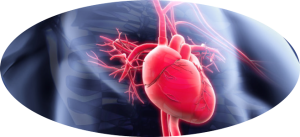
Digestion is a complex task performed by the body. It begins in the mouth and finishes when the ingested food leaves the body through the rectum. For all we have learned over the years regarding digestion, there is still so much more we don’t know or are still learning. For example, it wasn’t until recently, the last 10 years or so, that modern medicine confirmed our gastrointestinal tract is our second brain. This discovery is drastically changing the way the body and its many functions are viewed, because everything we put in our mouths can potentially have life-altering effects on the mind, as well as the body.
Digestive disorders are rampant in the United States. Surveys estimate nearly 70 million people in the United States are affected by some sort of digestive disorder. This could be anything from gallstones to acid reflux to pancreatitis. For many, these disorders are extremely debilitating. But for every person dealing with a debilitating digestive disorder, there are thousands more that just assume everything they are experiencing is “normal.”
Traditional Chinese Medicine (TCM) is just one of the many ways people can deal with their digestive disorders. TCM is a very old medical system that utilizes many different modalities to treat imbalances in the body. Acupuncture is just one of the modalities that can be used. More and more studies about the effectiveness of acupuncture are being performed every day, many of which hold great promise for those who suffer from digestive issues.
Acupuncture helps with digestion because it treats the person holistically, meaning all parts are considered when treatment is rendered. There is no compartmentalizing as in Western medicine. So, a person being treated by a licensed acupuncturist or TCM practitioner will not only notice changes in their digestive issues, but they may also notice changes in their psyche too. And since the mind and body are closely connected, this can be very beneficial for the patient.
Studies have shown acupuncture can stimulate peristalsis in the intestinal tract. This is very helpful for people who deal with chronic constipation. In as few as one to two treatments, a person suffering from chronic constipation may find relief.
Nausea and vomiting are another frequent problem associated with digestion. Acupuncture and even acupressure are wonderful tools for calming the upset stomach. One acupressure point on the underside of the forearm has been studied extensively just for this function. In most cases, the nausea and vomiting are greatly decreased or stopped altogether.
Bloating is another common problem associated with the digestive tract. This can be caused by eating too much food or improper digestion. Acupuncture treatments help the digestive process of breaking down foods without the excess gas that frequently causes bloating.
Diarrhea isn’t just a problem that occurs when somebody is suffering from the stomach flu. In fact, it is much more common than many people think. Acupuncture treatments can help resolve diarrhea by clearing either excess heat or excess dampness from the digestive tract, while also strengthening it.
If you are curious about how acupuncture and Traditional Chinese Medicine can help you with your digestive issues, ask us! We are happy to guide you along your healing journey.

 Changing the way you eat is one of the best ways to improve heart health. By making an active choice to improve your lifestyle, you can see your heart health improve greatly as well. Below are superfoods to incorporate into your diet.
Changing the way you eat is one of the best ways to improve heart health. By making an active choice to improve your lifestyle, you can see your heart health improve greatly as well. Below are superfoods to incorporate into your diet.  In Traditional Chinese Medicine, the heart can be considered the most important organ in the body. All other organs connect to the heart and help the heart function as best it can. According to TCM, regulated blood circulation depends on the heart’s energy flow, or Qi. When the heart does not have enough Qi and is deficient in Yang, it can result in poor blood circulation, weak pulse, palpitations and chest pain.
In Traditional Chinese Medicine, the heart can be considered the most important organ in the body. All other organs connect to the heart and help the heart function as best it can. According to TCM, regulated blood circulation depends on the heart’s energy flow, or Qi. When the heart does not have enough Qi and is deficient in Yang, it can result in poor blood circulation, weak pulse, palpitations and chest pain. Scientific research tends to focus on two types of meditation, mindful meditation and focused-attention meditation. Through the use of MRIs, scientists have developed a more thorough understanding of what actually takes place in our brains when we meditate. The most dramatic effect is that our brains stop processing information like they normally would. The frontal lobe, which is responsible for reasoning, planning, emotions and self-consciousness, tends to stop functioning during meditation. The parietal lobe, which processes sensory information, slows down. The thalamus, which is the area that focuses our attention by interpreting sensory information, actually shows a slowing of incoming information. So all of these things combined, allows our brains to relax.
Scientific research tends to focus on two types of meditation, mindful meditation and focused-attention meditation. Through the use of MRIs, scientists have developed a more thorough understanding of what actually takes place in our brains when we meditate. The most dramatic effect is that our brains stop processing information like they normally would. The frontal lobe, which is responsible for reasoning, planning, emotions and self-consciousness, tends to stop functioning during meditation. The parietal lobe, which processes sensory information, slows down. The thalamus, which is the area that focuses our attention by interpreting sensory information, actually shows a slowing of incoming information. So all of these things combined, allows our brains to relax.

